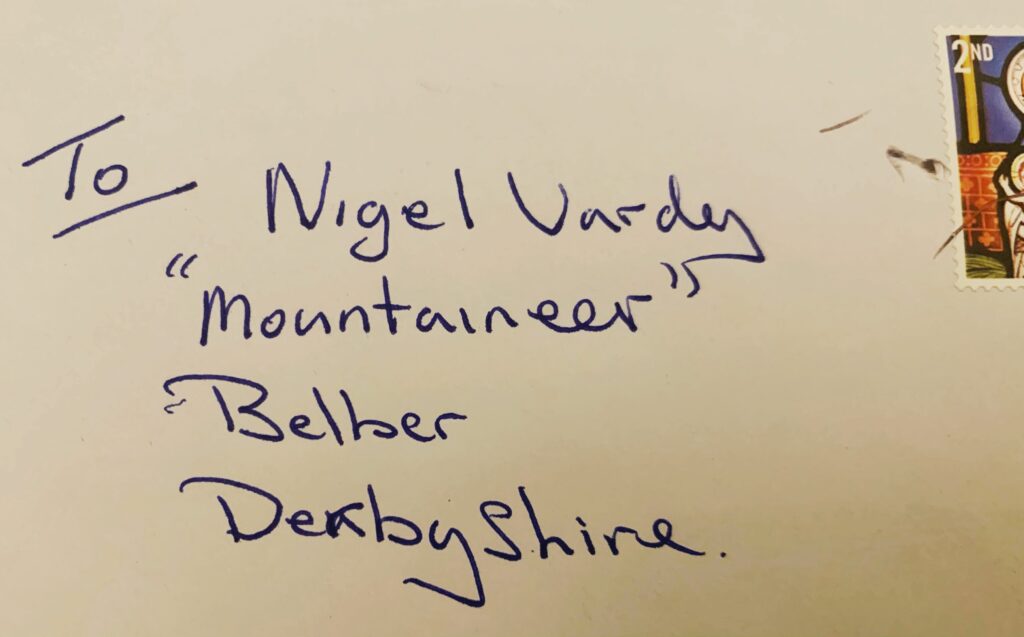
The internet and e-mail, Messenger, Instagram, Twitter, Linked-In etc etc, have all increased the ability to contact one another, but are we listening..?
We used to use written addresses complete with postcodes, which weren’t infallible, although the intervention of a good postie helped. I can still remember receiving a letter marked “Nigel Vardy, Mountaineer, Belper, Derbyshire’
We have exchanged the pen for the screen (or keyboard) and our address for info@/contact@/sales@/secretary@/treasurer@ etc. Whilst this all sound simple enough, we have to do something incredibly simple, which people and companies consistently fail at – Read and reply to them..! Let me explain…
Recently I wanted to replace some ageing thermal underwear. I looked online at a local and expanding company (who I have worked with in the past) and found the items I was after out of stock, but I could call. So I did. I called three times and every time the line went dead. I e-mailed info@, and over a month later I still have had no reply. I then found a contact on Instagram with a name on it. Fooled into thinking I was going to contact a person, I wrote a simple message and received a simple reply – the person was still on furlough because of COVID-19..!
This is not an uncommon occurrence. I have sent messages to a number of companies recently and received a plethora of automated replies stating that I would be contacted within 14 days. I’m still waiting.
Eventually I had to buy the required thermals from a large high street supplier, as the companies with all the ‘buy ethically, buy local, support smaller business’ banners have still failed to contact me. I find this incredibly sad.
I’m not saying that we should sit online just in case an enquiry comes. I understand that buckets of spam will come your way. But if you’re going to promote yourselves and put contact details online, then use them effectively.
I’ve been a huge fan of Seth Godin and once again, he hits the nail right on the head…
‘Big companies act like big companies. We don’t take them seriously when they say they care, because there is no “they.” When they send a holiday card or an email, we don’t really think it was from a person we could connect with.
Individuals act like individuals. When they write us a note or show up in person, we know that we’re dealing with a human.
In between, though, problems arise.
Did your friend really write that tweet, or did the staff do it?
That email that you just got, BCC… when you hit reply, will it go to the person who purported to send it, or to a team, or the infinite void?
The voice in our head changes when the identity of the sender differs.
When individuals try to scale, they often think they can bring their care, personality and person-hood along for the ride. And inevitably, it ends up disappointing everyone. It’s possible you can trick us for a while, but if you succeed in persuading us that you’re a real person, we’ll feel tricked sooner or later.
If it’s not from you, say so’
In a world of too much communication, shouldn’t we work out what works, how to work it, and work it well..?